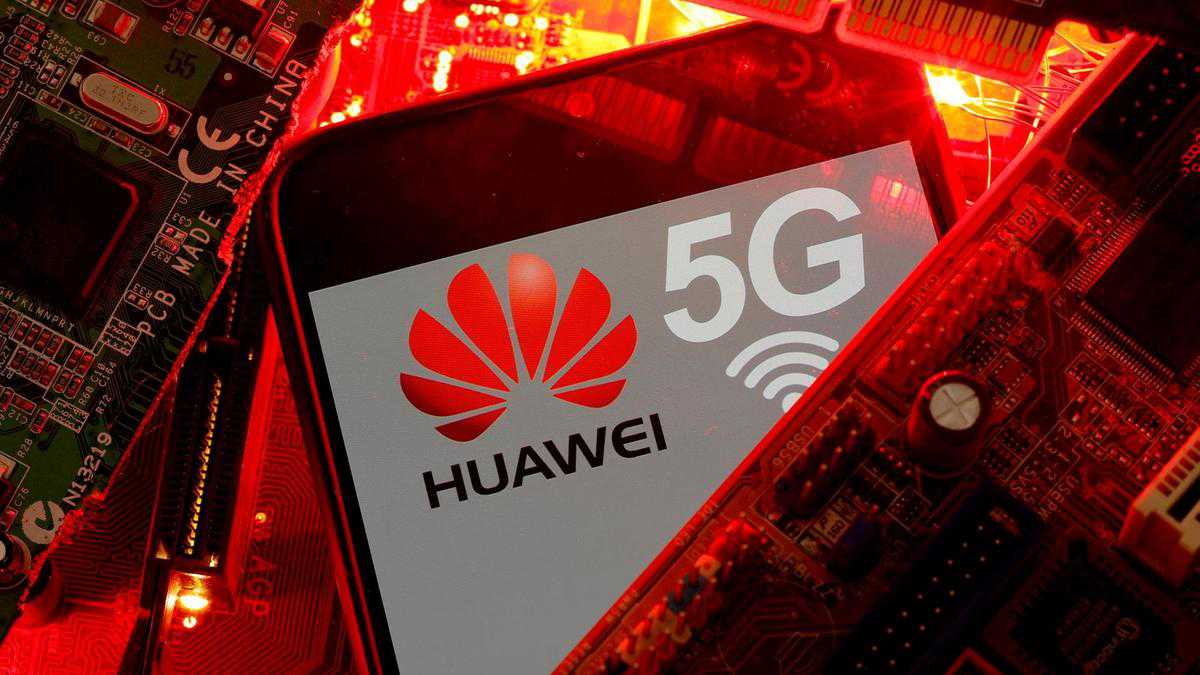Trump administration revokes licences of Huawei suppliers including Intel

Image: Collected
The Trump administration notified Huawei suppliers, including chip maker Intel, that it's revoking selected licences to market to the Chinese company and intends to reject dozens of other applications to provide the telecommunications firm, according to sources.
The action - likely the go on against Huawei under Republican President Donald Trump - may be the most recent in a long-running effort to weaken the world's greatest telecommunications equipment maker, which Washington sees as a national security threat.
The notices came amid a flurry of US attempts against China in the ultimate days of Mr Trump's administration. Democrat Joe Biden will need the oath of business office as president on Wednesday.
Huawei and Intel declined to comment. The Commerce Section said it might not comment on specific licencing decisions, but said it proceeds to work with other agencies to "regularly" apply licencing plans in a manner that "protects US national security and overseas policy interests".
In an email documenting the actions, the Semiconductor Industry Association said on Friday the Commerce Department had issued "intents to deny a substantial number of licence requests for exports to Huawei and a revocation of at least one previously issued licence". Options said there was multiple revocation. One of the options said eight licences were withdrawn from four firms.
The news triggered moderate profit-taking in some semiconductor-related shares in Asia.
Korea's Samsung Consumer electronics fell 1.5 %, while Japan's Advantest shed 1.5 per cent and Tokyo Electron shed 0.8 %.
Japanese flash memory chip maker Kioxia had at least one particular licence revoked, several of the sources said. The business, formerly referred to as Toshiba Memory Corporation, said it does not "disclose business details regarding specific items or customers".
The semiconductor association's email said the actions spanned a "wide range" of products in the semiconductor industry and asked companies whether they had received notices.
The e-mail noted that companies had been waiting "many weeks" for licencing decisions, and with under a week kept in the administration, working with the denials was a challenge.
A good spokesman for the semiconductor group didn't respond to a obtain comment.
Businesses that received the "intent to deny" notices have 20 times to respond, and the Commerce Department has 45 times to advise them of any transformation in a decision or perhaps it becomes final. Firms would in that case have another 45 times to appeal.
The US put Huawei on a Commerce Section "entity list" in May 2019, restricting suppliers from selling US goods and technology to it.
But some sales were allowed and others denied as the US intensified its crackdown on the business, partly by expanding US authority to need licences for product sales of semiconductors manufactured abroad with American technology.
Prior to the latest action, most 150 licences were pending for $120 billion worth of goods and technology, which had been held up because various US agencies cannot agree on whether they ought to be granted, a source stated.
Another $280bn of licence applications for goods and technology for Huawei even now have not been prepared, the foundation said, but now will be denied.
Intel has received licences from US authorities to keep supplying certain goods to Huawei, a great Intel spokesman said in September last year.
An August guideline said that goods with 5G capabilities were apt to be rejected, but sales of less superior technology would be chosen a case-by-case basis.
The US made the most recent decisions throughout a half dozen meetings starting on January 4 with senior officials from the departments of Commerce, Talk about, Defence and Strength, the foundation said. The officials designed detailed guidance with regard to which technologies were capable of 5G, and applied that common, the source added.
That meant issuing denials for the vast majority of the roughly 150 disputed applications, and revoking the eight licences to make those consistent with the latest denials, the foundation said.
The US action came after pressure from a recently available Mr Trump appointee in the Commerce Department, Corey Stewart, who wished to push through hardline China policies after staying hired for a two-month stint in the agency towards the end of the administration.
Mr Trump has targeted Huawei in different ways. Meng Wanzhou, Huawei's chief economical officer, was arrested in Canada in December 2018, on a US warrant. Ms Meng, the daughter of Huawei's founder, and the business itself had been indicted for misleading banks about its business in Iran.
Ms Meng has said she actually is innocent. Huawei provides denied the claims of spying and pleaded not liable to the indictment, which also includes charges of violating US sanctions against Iran and conspiring to steal trade secrets from American technology firms.
Source: https://www.thenationalnews.com
Previous Story
- Facebook says risk to US democracy resulted in...
- Ali Riaz: US method of Bangladesh to be...
- U.S. government probes Microsoft's effort to boost diversity
- RMG Products: Bangladesh seeks 2-year duty-free industry access...
- Trump signs $2 trillion recovery plan as US...
- Trade via Ctg port falls amid coronavirus fallout
- Oil tops $70 as Iran, Trump exchange dangers
- Twitter system 'outage' briefly blocked Trump whistleblower tweet